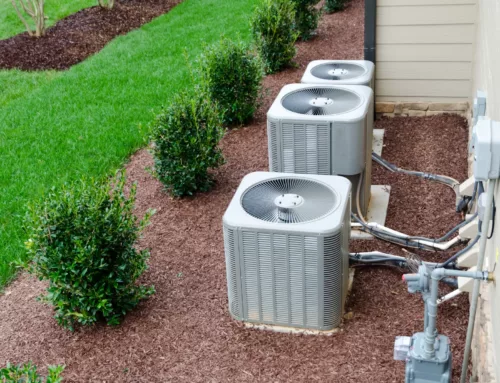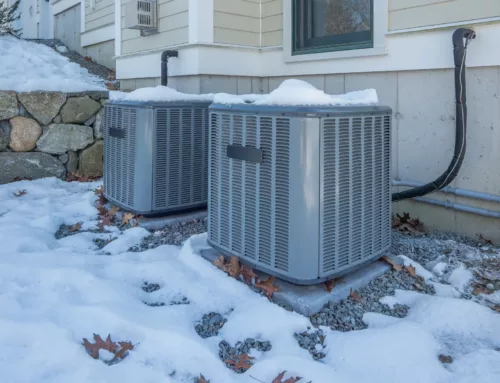Imagine stepping into your shower on a chilly morning, only to be greeted by a blast of icy water. It’s the kind of wake-up call no one wants, and it underscores the importance of a reliable water heater. When your current unit is on the fritz or just too outdated to keep up with your needs, buying a new water heater can seem like a daunting task. But fear not! By considering these five key factors, you’ll be well on your way to finding the perfect water heater for your home.
Size Matters: Finding the Right Fit for Your Home
Choosing the right size for your water heater is crucial to ensuring you never run out of hot water when you need it most. The size of your water heater should be determined by your household’s needs, including the number of people in your home and their hot water usage patterns.
One of the best ways to determine the appropriate size is by looking at the First Hour Rating (FHR). The FHR tells you how much hot water the heater can deliver in the first hour of use. This is particularly important during peak times, like mornings when everyone in the house is showering, using the dishwasher, and doing laundry.
Here’s a simple table to help you estimate the right size based on your household size:
| Household Size | Recommended FHR (Gallons) |
|---|---|
| 1-2 people | 38 – 49 gallons |
| 3 – 4 people | 40 – 60 gallons |
| 5+ people | 60 – 80 gallons |
Keep in mind that your specific hot water needs may vary, so it’s always a good idea to consult with an expert at Reliance Heating & Air Conditioning to ensure you’re choosing the right size.
Energy Efficiency is Key: Lowering Bills and Environmental Impact
Energy efficiency is not just a buzzword—it’s a key factor that can have a significant impact on your energy bills and your home’s environmental footprint. When evaluating water heaters, you’ll come across the Energy Factor (EF), a measure of a unit’s efficiency. The higher the EF, the more efficient the water heater.
There are several types of water heaters, each with its own efficiency levels:
- Tank Water Heaters: Traditional models with a large storage tank. While they are often less expensive upfront, their energy efficiency is generally lower compared to other types.
- Tankless Water Heaters: These models heat water on demand, meaning they don’t store hot water. This can result in significant energy savings since you’re not heating water you’re not using.
- Heat Pump Water Heaters: These are among the most energy-efficient options. They work by transferring heat from the air or ground to heat the water, using much less energy than traditional models.
Investing in a high-efficiency water heater can lead to substantial savings over time, and you might also qualify for government rebates or tax incentives, making these models even more attractive. Plus, you’ll be doing your part to reduce your home’s carbon footprint.
First Hour Rating (FHR): Don’t Get Caught Short
We’ve touched on the First Hour Rating (FHR) already, but it’s important to delve deeper into why this rating is so crucial. The FHR indicates how much hot water a heater can deliver in the first hour of use. This is especially relevant for households with high hot water demand during peak times, such as early morning or evening.
When choosing a water heater, consider your household’s daily routines. For instance, if everyone in the house typically showers around the same time, you’ll want a water heater with a higher FHR to ensure there’s enough hot water for everyone.
Tips for choosing the right FHR:
- Analyze your daily routines: Consider when and how often you use hot water in your home.
- Consult with a professional: Reliance Heating & Air Conditioning can help you evaluate your needs and recommend a unit with the right FHR for your household.
Warranty and Maintenance Plans: Peace of Mind
When purchasing a water heater, the warranty is more than just a piece of paper—it’s a promise of reliability. A good warranty can provide peace of mind, ensuring that if something goes wrong, you’re covered. Typically, warranties cover the tank, parts, and in some cases, labor. The length of a warranty can vary, but most reputable brands offer warranties ranging from 6 to 12 years.
Beyond warranties, it’s crucial to consider the importance of regular maintenance to extend the life of your water heater and keep it running efficiently. Reliance Heating & Air Conditioning offers comprehensive Maintenance Plans that include regular inspections, flushing, and servicing of your water heater. These plans not only help prevent unexpected breakdowns but also ensure that your water heater operates at peak efficiency, potentially saving you money on energy bills and repairs in the long run.
Budget & Installation Costs: The Whole Picture
While the upfront cost of the water heater itself is an important factor, it’s also essential to consider the installation costs. Depending on the complexity of the installation, these costs can vary significantly. For example, switching from a traditional tank water heater to a tankless model may involve additional expenses for retrofitting your home’s plumbing or electrical system.
However, it’s important to remember that while high-efficiency models may have a higher initial cost, they often result in long-term savings on your energy bills. When you factor in these savings, along with potential rebates and tax incentives, investing in a more efficient model could be the smartest financial decision in the long run.
Additional Considerations for Your New Water Heater
While we’ve covered the essentials, there are a few additional factors you might want to consider when selecting a new water heater:
- Smart Features: Modern water heaters often come with smart technology that allows you to monitor and control your water heater remotely through a smartphone app. These features can provide convenience and help you optimize your energy usage by scheduling heating times or receiving alerts if something goes wrong.
- Fuel Source: The fuel source is another critical consideration. Most water heaters run on electricity or natural gas, but some may use propane, oil, or even solar energy. It’s important to choose a water heater that is compatible with your home’s existing energy source, or consider the benefits of switching to a more efficient option.
- Water Softener: If you live in an area with hard water, installing a water softener can significantly extend the life of your water heater. Hard water can lead to mineral buildup inside the tank, reducing efficiency and potentially causing damage over time. A water softener helps prevent this buildup, ensuring that your water heater operates smoothly for years to come.
Conclusion
Buying a new water heater doesn’t have to be overwhelming. By considering the size, energy efficiency, FHR, warranty, and installation costs, you can make an informed decision that will provide your home with reliable hot water for years to come.
If you’re ready to dive deeper into your options or need expert advice, the team at Reliance Heating & Air Conditioning is here to help. And don’t forget to stay tuned for our upcoming article on the benefits of high-efficiency water heaters, where we’ll explore even more ways to save energy and money.
Contact Reliance today for all your heating and air conditioning needs!
Financing available, contact us for more details.







